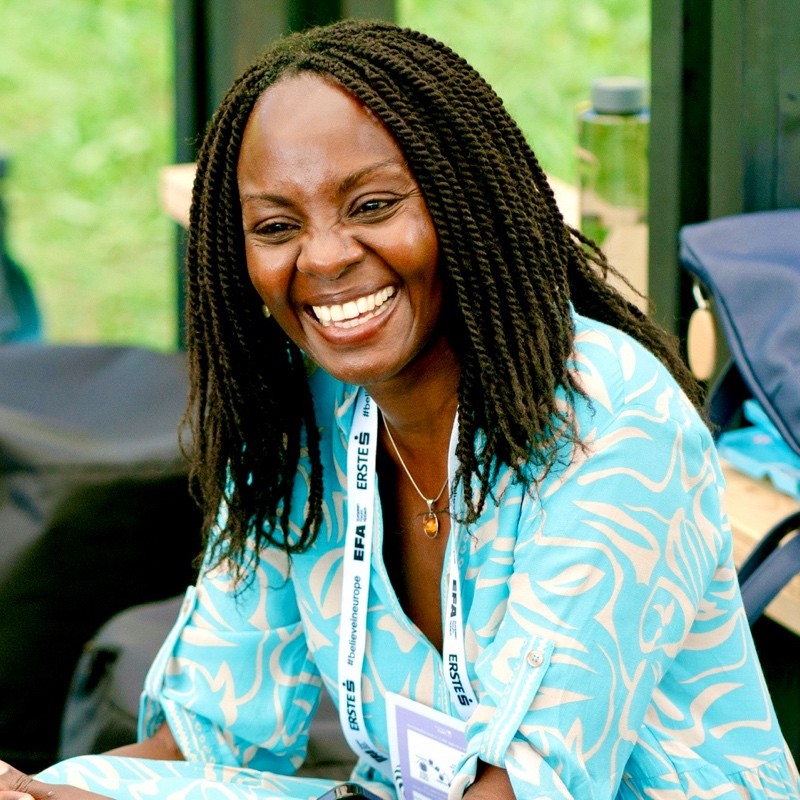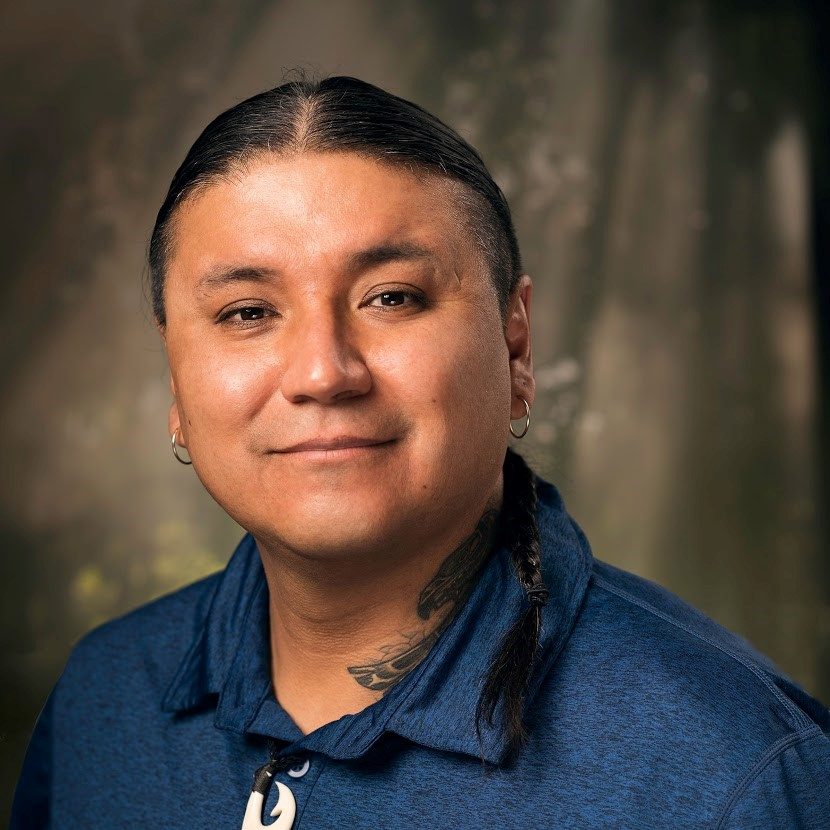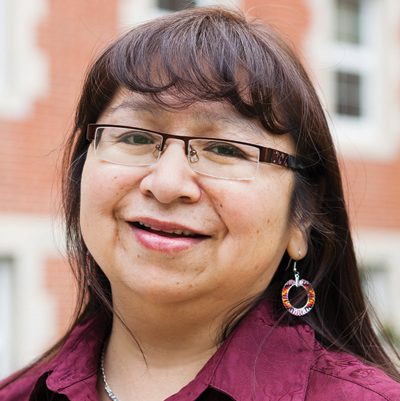Please register for the Congress-1, and specific Serious Games sessions and Workshops using this form.
Wakanyi Hoffman: “Weaving Stories of Ubuntu: Navigating Humanity in a More-than-Human World“
Date and Time: 24/02/2025, 10 – 11am
Wakanyi Hoffman is a public speaker and an African Indigenous knowledge scholar who is currently advocating for the inclusion of Ubuntu philosophy ethics in AI systems design to promote sustainable Indigenous ways of thinking and knowing. In her talk, “Weaving Stories of Ubuntu: Navigating Humanity in a More-than-Human World,” Wakanyi invites us to explore the transformative power of storytelling within the framework of Ubuntu, a philosophy that teaches, “I am because we are” and “A person is a person through other persons”.
Wakanyi will take a deep dive into the heart of Ubuntu and illustrate how this pluralistic perspective can help reshape our understanding of humanity’s role in the greater web of life. Through engaging stories from her African heritage, she will reveal how storytelling has historically been a powerful tool for communicating collective values and fostering empathy across diverse cultures.

In the spirit of the conference theme, “Speaking for Change. Speaking about Change: Language as a Tool for Social and Environmental Transformation”, Wakanyi challenges us to rethink our narratives of sustainability by reconsidering how we define “being human”. Her keynote will explore how adopting an Ubuntu mindset can encourage collaboration with the natural world, promoting a more harmonious existence and a sustainable future.
Wakanyi Hoffman calls us to reimagine our relationships with each other and the living world by facing the root problems that have created unsustainable systems. This keynote is not just an invitation to listen but a call to action- a reminder that through the shared tapestry of our interwoven stories, we can inspire change and foster a world where our cultures and all that is alive can flourish together.
Join us for an exploration of cultural wisdom and collective action, and discover how you, too, can become a storyteller for change.
Dorothy Thunder and Randy Morin: “Reclaiming nehiyawewin (Plains Cree): Relationality to the Land (askiy)“
Date and Time: 24/02/2025, 14.30 – 15.30
Randy Morin is a nêhiyaw (Plains Cree) and is originally from the Big River First Nation, located on Treaty 6 Territory in central Saskatchewan. He is a proud father of 3 and currently teaches at the University of Saskatchewan focusing on language revitalization and reclamation.
There are over 70 Indigenous languages in Canada and only 3 of them are projected to still be spoken in the next 25 years. These are the Cree, Inuktituk, and Ojibwa languages. Randy will present on issues related Indigenous languages in terms of the history of why they are going to sleep in Canada and his work on how he is fighting to keep them alive, especially the nêhiyaw or Cree language. He will also present on the teachings and concepts that are embedded in the language, and could be used to help Mother Earth and to help fight climate change.
He will talk about a few teachings such as pimâtisiwin, which means the journey of life, wahkohtowin, which means everything is related, and manâcihitowin, which means to take care of everything. There are just a few deep concept words that have deep teachings related to creating a healthy world and healthy lands as well as discussing the nêhiyaw cosmology and how it is related to the land. He will share stories of how he has seen the teachings used by his people on the lands and how the teachings and concepts have the solutions in them to help with the climate crisis.


Dorothy Thunder is a first-language speaker of nehiyawewin/Plains Cree from Little Pine First Nation in Saskatchewan, Canada and is a Professor of Cree at the University of Alberta. Recognizing that her command of the language is uncommon among members of her generation, she shares it at every opportunity: in classrooms, on-line teaching, and at land-based camps. Dorothy serves as a major contributor to contemporary Cree language reclamation and revitalization. Her personal experiences and land-based language camps have given her unique insights into the role of language in relationship to the land. In her presentation, she will talk about her experiences as a nehiyaw iskwew (Plains Cree woman) looking after kikâwînaw askiy (mother earth) and the gifts that the land has to offer and the importance of looking after the land (wâhkohtowin). She will also share the stories that she has heard from nehiyaw kehte-ayak (Elders).
Date and Time: 24/02/2025, 12 – 13.30 – Registration required
CONSTELLATION
“There are some questions that cannot be answered from our mind’s intelligence, and those are some of the most essential and urgent questions of our lives and time. What if the Emerging Future wants to be listened to? What if we would listen to the Knowing Field? What if we let ourselves explore, starting from a place of not-knowing and curiosity?”
The Hague Center for Field Inquiry
Have you ever felt that you would like clarity on the deeper causes of something? Or would like to have an idea of what is most relevant going forward?
Join us for a constellation and experience a field of valuable insights and information. A constellation is an emergent, evolving ‘technology’ for these changing times: it provides a way to create and read a living 3D map of the whole system, a way to embody energy and information so that they are made visible in image and in language. In a constellation you investigate a question or/and pattern within a system. By observing and exploring without judgement, the facilitator tries to make unconscious patterns and dynamics visible and to create space for a new movement or change, or narrative.
Length of round: 1 ½ hour
Participants: up to 30
Facilitator: Erica E.C. Harpe | Reinventing Ourselves | www.reinventingourselves.eu | IDGs
LEGO SERIOUS PLAY: Designing your community
Join us for a thought-provoking and creative LEGO® Serious Play® (LSP) workshop where you’ll explore and define your own vision of community. In this session, participants will use LEGO bricks to construct symbolic representations of what ‘community’ means to them—whether it’s a neighborhood, a professional network, loved ones, or something entirely unique. Through collaborative building, storytelling, and discussion, participants will reflect on and share their personal perspectives, while also engaging with others’ interpretations of community. The process encourages negotiation, alignment, and the creation of a collective model that integrates diverse ideas into a shared vision of a future ‘sangha’—a community that supports and sustains humanity. Whether you’re reflecting on your personal relationships, professional networks, or broader societal connections, this interactive session offers a unique platform to uncover, discuss, and design your ideal community.
Length of round: 1 hour
Participants: 8 per round
Facilitator: Orrie Staschen (with the guidance of Dr. Mariana Markantoni – University College Groningen)
CHECK THE LABEL! A boardgame
The game teaches players how microplastics are released from synthetic clothes. Furthermore, through trivia questions and action cards, players learn how these microplastics impact the environment and our health, and what actions can be taken to reduce the emission of and exposure to microplastics from synthetic clothes, for example, by teaching them what materials are synthetic and which are natural. The game also asks players to reflect on their current behavior surrounding the use of synthetic clothes.
Length of round: 30 – 45 minutes
Participants: 2×4 per round
Facilitator: Marieke Wieringa (PhD candidate, designer of the game)
KOSMOPOLIT
Kosmopolit is a cooperative, evolving game that helps to develop language awareness. Players are waiters trying to describe to the kitchen the dishes ordered by guests from all over the world – and in many different languages.
Length of round: 15 minutes
Participants: 8 per session
Faciliators: Anastasia Pattemore and Matthew Pattemore
Date and Time: 25/10/2025, 14.30 – 16.00 – Registration required
Critical Textbook Lab: Uncovering Ideologies in Educational Materials
Facilitator: Dr Joanna Chojnicka
In this hands-on workshop, students will learn to critically examine their textbooks for underlying ideologies and biases masked by claims of objectivity and scientific neutrality. Textbooks, often perceived as neutral sources of knowledge, are shaped by cultural, political, and historical contexts that influence how information is presented. Through guided activities and collaborative discussion, participants will be introduced to basic tools of critical reading and textual analysis. We will focus on identifying textual devices, such as selective emphasis, framing and metaphors, as well as erasure, that subtly convey ideological stances.
Participants are encouraged to bring their own textbooks, which will serve as material for group analysis. By scrutinizing content, language, and multimodal elements, students will uncover how textbooks reinforce certain worldviews while marginalizing others. The workshop aims to foster a deeper awareness of how educational materials shape perceptions of knowledge, power, and truth. By the end, students will be better equipped to question what appears as neutral information and develop a more critical approach to reading and learning. This interactive workshop is ideal for students seeking to enhance their critical thinking skills and apply them to real-world educational contexts.
The Inner Development Goals (IDGs) and the transformative potential of language awareness
Facilitator: Dr Erika Darics
What role does language play in shaping the way we ‘are’, think, relate, and act? How can becoming critically aware of communication transform both personal and collective growth?
This workshop introduces the Inner Development Goals (IDGs) as a framework for cultivating transformative education and showcases how Critical Language Awareness (CLA) can act as a “super competency” to achieve these goals. In the workshop, participants will engage in hands-on activities to progress through the levels of language awareness, from ‘observing’ to ‘applying’, ‘analysing’ and ‘transforming’. At the highest level of awareness (what we call CLA) participants will observe the power of language and communication in shaping societal structures and power – and importantly, realise the emancipatory potential of this knowledge. After this guided tour through the levels of awareness, participants will work together to map these competencies to the IDG pillars—Being, Thinking, Relating, Collaborating, and Acting. This workshop will be particularly beneficial for educators, researchers, and (future) professionals who are committed to transformative education and personal development; and want practical tools to integrate language awareness into their or their student’s inner development journey.
Voices of the Future? Children as Rhetorical Climate Activists
Facilitator: Dr Jelte Olthof
Inspired by Greta Thunberg and others, young people across the globe protest their government’s inability to address climate change. Some have also taken legal steps to safeguard a healthy future environment and sued their governments in court. Prominent examples of this are the young plaintiffs in Juliana v. United States (2020) and in Agostinho v. Portugal (2024).
In this workshop we will explore how young climate activists employ their ‘childhood’ as a rhetorical tool to persuade governments, the courts, and the public to act on climate change. How is their use of language different from that of adult climate activists? In what ways does their youth offer them rhetorical options not available to others? And to what extent has this helped them persuade others, like government officials and judges, to their cause?
In the workshop, we will analyze speeches by young climate activists to answer these questions using insights from a growing body of scholarship that looks at youth as rhetorical advocates. Youth gives these activists certain rhetorical advantages, including innocence and the ability to speak for the future, but also disadvantages, including the struggle to be taken serious as political advocates. During the workshop, participants will help investigate which of the two is more compelling and learn about the present state of youth climate advocacy in the courts.
Hate Speech
Facilitator: Dr Dimitris Serafis
Originating from a legal background, hate speech refers to cases of public language use that explicitly incite hatred and violence against a group with protected characteristics, such as race or religion (Council of Europe, 2008). However, recent approaches to the phenomenon in real-life communication advocate for a more focused scholarly exploration of implicit manifestations of hate speech that often pass under the legal radar (Assimakopoulos, 2020). In many cases, these approaches aim to identify the underlying reasoning (Serafis, 2022) that legitimizes hate in society. Against this backdrop, this workshop will provide participants with the opportunity to examine data from public documents and engage in an analysis and critical discussion of discursive choices and strategies that can implicitly sustain hate speech.
References
Assimakopoulos, Stavros. 2020. Incitement to discriminatory hatred, illocution and perlocution. Pragmatics and Society 11(2): 177–195
Council of Europe. 2008. Council framework decision 2008/913/JHA of 28 November 2008 on combating certain forms and expressions of racism and xenophobia by means of criminal law. Official Journal of the European Union L 328/55. Available at: http://eurlex.europa.eu/LexUriServ/LexUriServ.do?uri=OJ:L:2008:328:0055:0058:en:PDF
Serafis, Dimitris. 2022. Unveiling the rationale of soft hate speech in multimodal artifacts: A critical framework. Journal of Language and Discrimination 6(2): 321–346.
Communicating Sustainability: Avoiding Fluffy Language
Facilitators: Greta Zella and María Pilar Uribe Silva, PhD candidates in Computational Linguistics at the University of Groningen
This interactive workshop is designed to help participants communicate sustainability initiatives in a compelling, precise, and mindful manner.
The session focuses on addressing the prevalent use of vague and deceptive language often found in sustainability messaging. Working in small groups, participants will develop a campaign against unsustainable diets, such as “Food Waste Reduction”, “Local Food Consumption” (Support Local Farmers), or “Choose an Ethical Diet”, with the challenge of avoiding ambiguous or overused terms like “environmentally friendly” or “green.”
Using creativity and critical thinking, each group will craft a clear and impactful campaign message. They will then present and promote their campaign, ensuring their communication is precise, engaging, and free of vague language.
Additionally, participants will work with a corpus on sustainable diets to analyze real-world language use in sustainability discourse. They will also explore how Natural Language Processing (NLP) tools can support the creation of more precise and meaningful content.
By the end of the session, attendees will have developed a deeper awareness of how language influences sustainability narratives and gained practical strategies to communicate sustainability with clarity and impact.
Important: Participants should bring a computer to the workshop to open the link to the notebook that will be used during the activity. Just so you know, no prior knowledge is required for this workshop.

